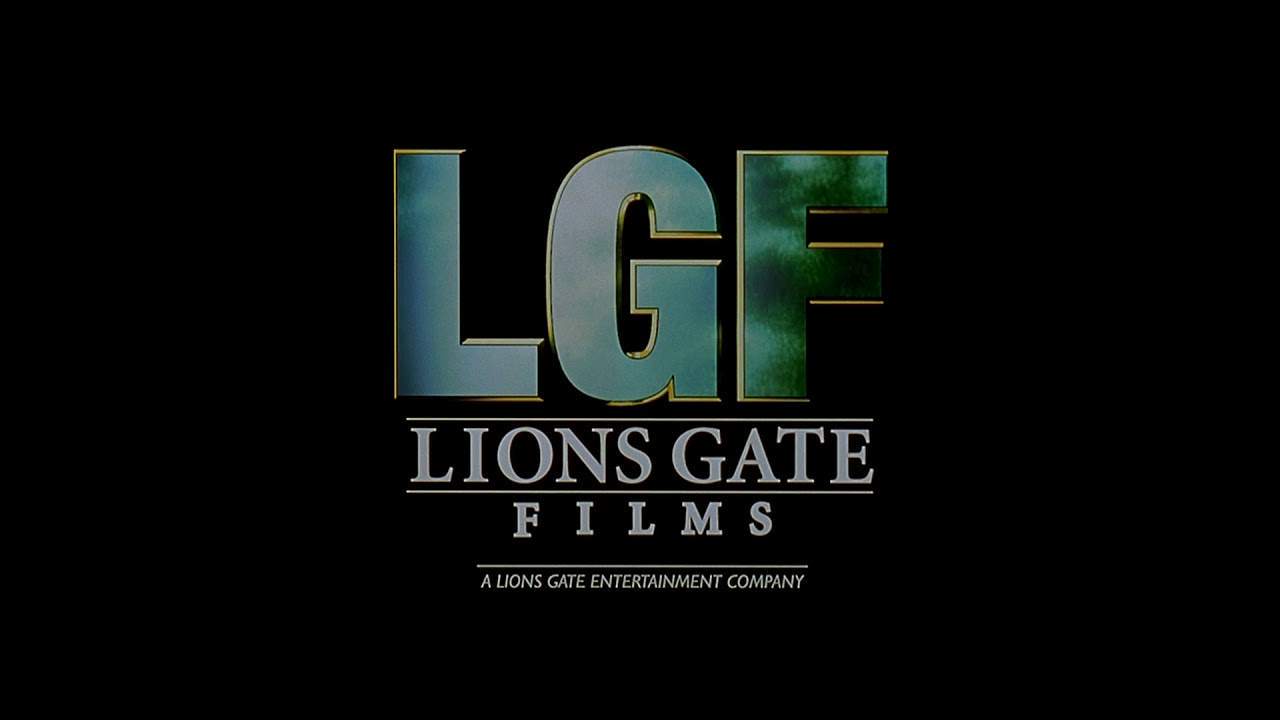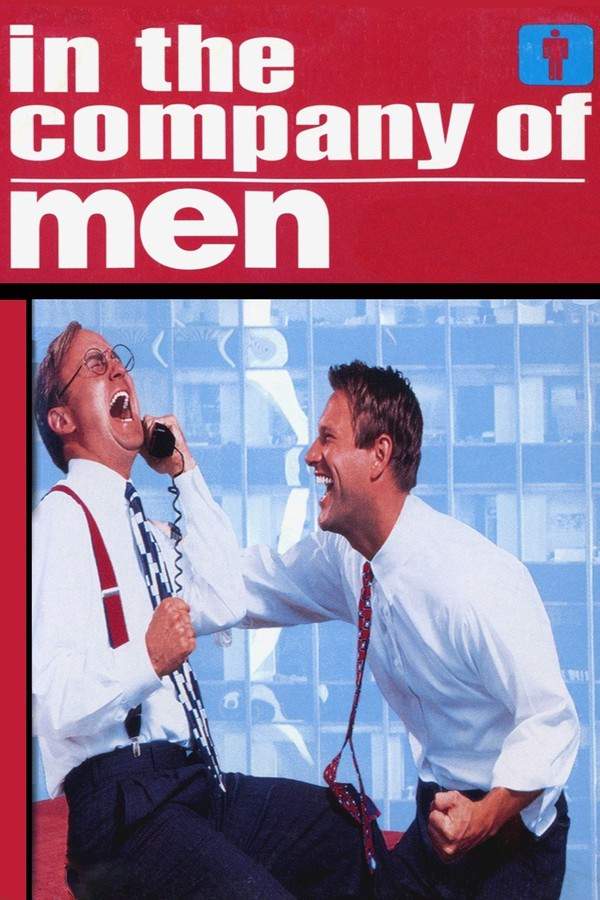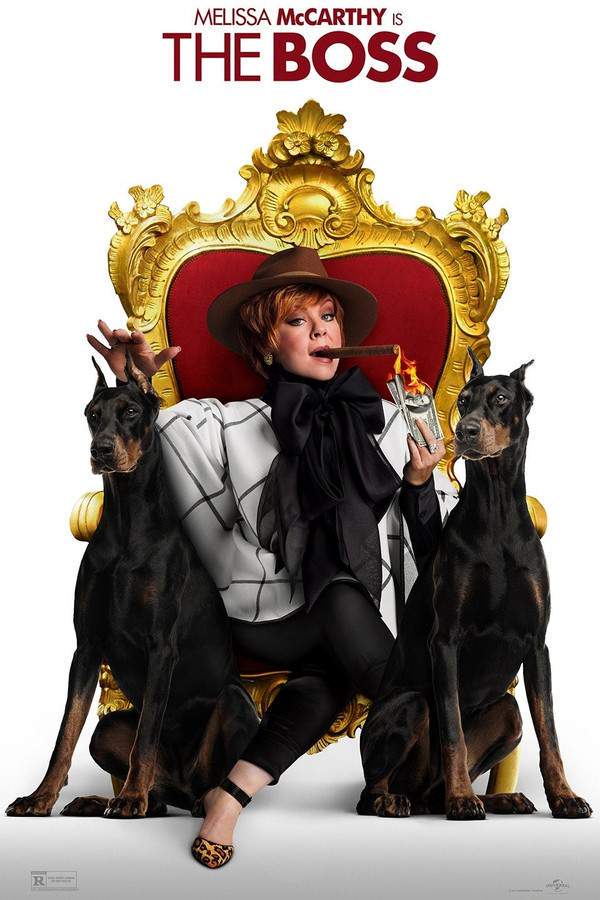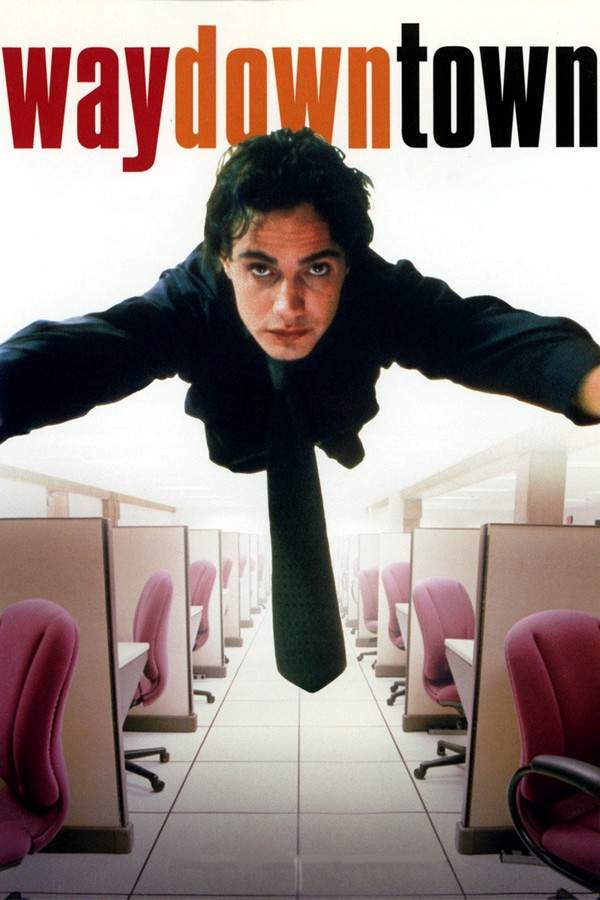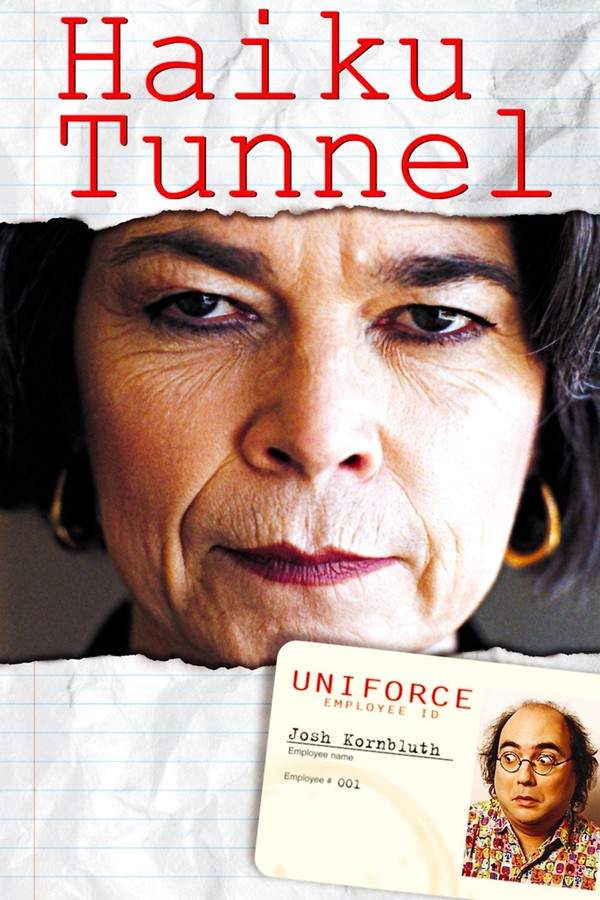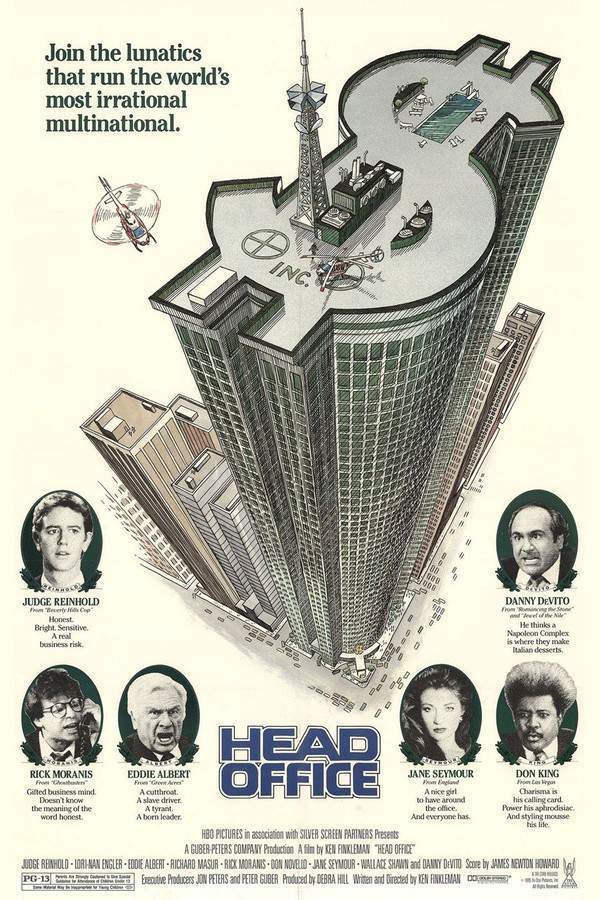Corner Office 2023
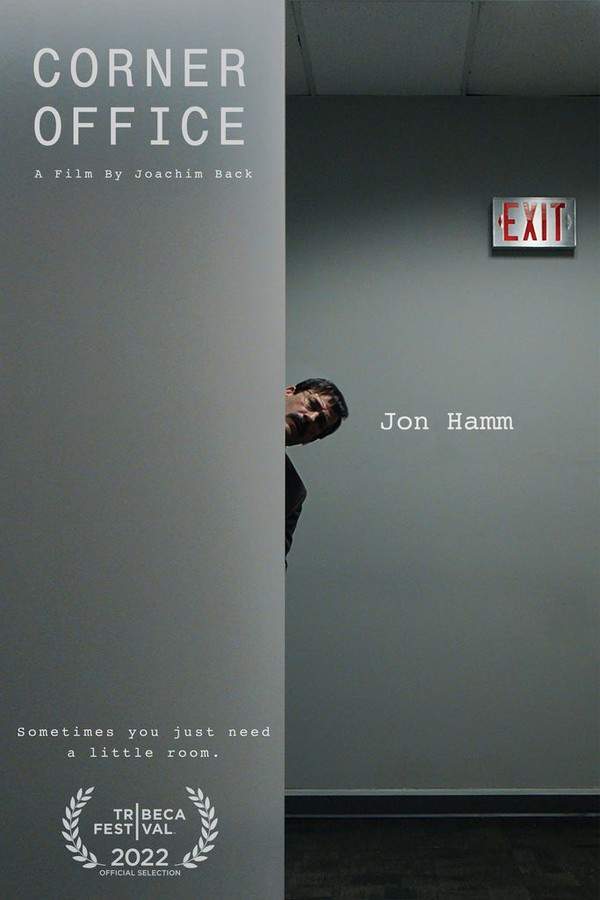
Orson, a new employee at Authority Inc., is determined to succeed in the competitive workplace. He adheres to a strict routine and clashes with his more relaxed colleagues. His life changes when he discovers a beautiful, secluded office, which becomes his sanctuary and a source of incredible productivity. As his work earns recognition and praise from his superiors, his coworkers become increasingly baffled and envious of his success.
Does Corner Office have end credit scenes?
No!
Corner Office does not have end credit scenes. You can leave when the credits roll.
Meet the Full Cast and Actors of Corner Office
Explore the complete cast of Corner Office, including both lead and supporting actors. Learn who plays each character, discover their past roles and achievements, and find out what makes this ensemble cast stand out in the world of film and television.

Veena Sood
Psychiatrist
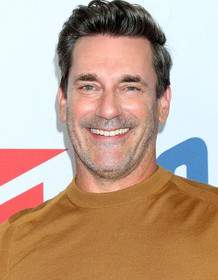
Jon Hamm
Orson

Sarah Gadon
Alyssa

Allison Riley
Carol

Andy Thompson
Old Boss

Bill Marchant
Mitchell
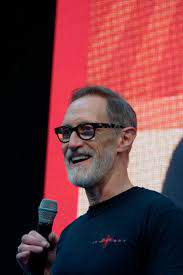
Christopher Heyerdahl
Andrew

Conor Stinson O'Gorman
Nicholas
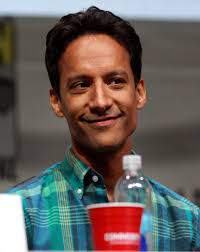
Danny Pudi
Rakesh

June B. Wilde
Meredith

Kimberley Shoniker
Shannon

Mark Dozlaw
Elevator Colleague

Shawn Macdonald
Bradley
External Links and Streaming Options
Discover where to watch Corner Office online, including streaming platforms, rental options, and official sources. Compare reviews, ratings, and in-depth movie information across sites like IMDb, TMDb, Wikipedia or Rotten Tomatoes.
Ratings and Reviews for Corner Office
See how Corner Office is rated across major platforms like IMDb, Metacritic, and TMDb. Compare audience scores and critic reviews to understand where Corner Office stands among top-rated movies in its genre.

The Movie Echo Score
Corner Office delivers a mixed cinematic experience that oscillates between moments of visual intrigue and extended periods of stylistic flatness. The film offers occasional striking set pieces and an unsettling architectural aesthetic, yet its direction and production design often feel undercooked, limiting the impact of its satire. Narrative cohesion suffers from uneven pacing, resulting in a work that intrigues but rarely sustains engagement. Consequently, the movie lands in a middle ground, appealing to niche viewers while leaving broader audiences unconvinced.
The Movie Echo Score Breakdown for Corner Office

Art & Craft
In terms of art and craft, the film showcases intermittent visual flair, such as stark architecture reminiscent of dystopian video games, but overall suffers from a lifeless aesthetic. Critics note a lack of seasoned direction and uneven editing, while a few viewers praise its cinematography. The production design frequently feels mechanical, failing to fully support the satirical premise. As a result, the technical execution remains modest and inconsistent.

Character & Emotion
When evaluating character and emotion, Jon Hamm’s performance emerges as a central anchor, delivering a steady, if not spectacular, portrayal that compensates for weaker ensemble work. Some reviewers describe Hamm as bland, yet others find his anti-heroic turn compelling. Supporting characters receive limited development, contributing to a generally shallow emotional landscape. Overall, the acting provides a modest level of engagement, with Hamm’s presence elevating the material despite uneven chemistry.

Story & Flow
Regarding story and flow, the narrative presents an intriguing premise that blends satire with surreal office horror, but its execution falters. The plot’s pacing drifts, and the climax is perceived as underwhelming, leaving the audience questioning the film’s resolution. While a minority of viewers found the plot gripping and original, many critics highlighted fuzzy messaging and a basic ending. Consequently, the story achieves only moderate coherence and originality.

Sensory Experience
In the sensory domain, the film offers occasional auditory and visual texture, with a soundscape and score that underscore its eerie tone. Selected reviewers commend its cinematography and atmospheric design, yet others find the overall sensory experience dull and uninspired. The soundtrack does not consistently enhance tension, and visual style swings between striking and monotonous. Thus, the sensory elements deliver a mixed impact that neither fully elevates nor detracts from the viewing.

Rewatch Factor
Assessing rewatch factor, Corner Office sparks curiosity for viewers attuned to corporate satire and surreal metaphor, prompting some to consider repeat viewings to unpack its layers. Positive audience feedback highlights its lingering thematic resonance, whereas harsher critics dismiss its lack of depth as a barrier to revisiting. The film’s niche appeal and ambiguous ending provide modest incentive for a second look, resulting in an average replay value.

47
Metascore
5.9
User Score


26%
TOMATOMETER

62%
User Score

6.1 /10
IMDb Rating

65
%
User Score

3.2
From 23 fan ratings

2.83/5
From 6 fan ratings
Take the Ultimate Corner Office Movie Quiz
Challenge your knowledge of Corner Office with this fun and interactive movie quiz. Test yourself on key plot points, iconic characters, hidden details, and memorable moments to see how well you really know the film.
Corner Office Quiz: Test your knowledge on the intricate dynamics and themes presented in the 2023 film Corner Office.
What is Orson's main peculiarity compared to his coworkers?
He is a master of small talk
He is unapologetically honest
He is extremely ambitious
He has a chaotic workspace
Show hint
Full Plot Summary and Ending Explained for Corner Office
Read the complete plot summary of Corner Office, including all major events, twists, and the full ending explained in detail. Explore key characters, themes, hidden meanings, and everything you need to understand the story from beginning to end.
Orson, portrayed by Jon Hamm, is undoubtedly a unique individual whose distinct traits are apparent to his coworkers. Unlike his colleagues, Orson possesses an uncanny ability to see through the hypocrisy and pretense that often define human interactions. This perplexity leaves him questioning why there is such a glaring mismatch between what people say and what they truly feel inside.
Having recently joined “The Authority Inc,” Orson yearns to reclaim the leadership role he once held at his previous job. However, he struggles with social dynamics, particularly the art of small talk, which he views as an exercise in futility. Nevertheless, his keen insights into workplace behaviors allow him to read his colleagues like open books.
For instance, he discerns that Mitchell (played by Bill Marchant) masks his fear of dismissal with superficial bravado. Carol (Allison Riley) exudes a superiority complex, while Shannon (Kimberley Shoniker) is the quintessential people-pleaser, forever seeking affirmation. Orson sits silently in a corner, observing their every word and gesture, aware of their underlying intentions.
Orson’s peculiarities extend to seemingly trivial aspects of life, such as disapproving of Rakesh’s (Danny Pudi) jacket color and the chaotic state of his desk. He voices a bizarre yet genuine concern that the towering files on Rakesh’s table might someday collapse on him—an anxiety that others dismiss as irrational.
A significant twist occurs when Orson discovers a magnificent room while en route to the restroom. This space perfectly aligns with his vision of an ideal workplace, and he begins inviting colleagues into it for crucial discussions, relishing the surge in productivity that the room ignites. Within this sanctuary, Orson feels empowered to tackle projects with an unparalleled focus.
However, his productivity becomes a point of contention when Andrew (Christopher Heyerdahl) confronts him after receiving complaints about Orson’s increasingly bizarre behavior. It turns out the opulent room is merely a figment of Orson’s imagination; what his colleagues perceive as him staring at a wall for hours is actually a manifestation of his disintegrating mental state.
Despite being encouraged to see a psychiatrist, he emerges with a clean bill of health, as the psychiatrist acknowledges his exceptional work ethic—though Orson faces a mandate to cease his discussions of the imaginary room. His coworkers grow frustrated with his continued presence, yet Andrew defends Orson, asserting that he poses no threat and has valuable contributions.
Orson’s unique perspective on life becomes more pronounced as he grapples with his mental health challenges and navigates the often absurd corporate environment. As department closure looms—a fear gleaned from overhearing arguments between Rakesh and Andrew—Orson secretly begins completing tasks for his colleagues and submitting the work in Andrew’s absence, all while under the delusion that he is generating his best work in the nonexistent room.
When his hidden efforts finally come to light, with Carol inadvertently witnessing him drop off a completed file, Andrew is left astonished by Orson’s capabilities. He expresses gratitude for Orson’s contributions, which saved the company from a crisis, yet Orson remains at a loss for words, still struggling to navigate human interactions.
As days pass, Orson grows weary of waiting on others, driven to request a permanent position in the imagined room. Despite Andrew’s reluctance, he begins to sense that Orson’s belief in the room reflects a broader understanding—one that could soon cost him his job. Orson’s fixation culminates in his dismissal when Alyssa (Sarah Gadon), the receptionist, questions his sanity.
In a poignant moment, after being fired, Orson evades security and rushes back to his fictitious haven, revealing the extent of his obsession. Through Orson’s journey, the narrative illuminates the often rigid expectations of corporate culture, where non-conformity is met with skepticism, while authentic ideas that challenge the status quo are often quashed.
“It is a stark reminder that those who dare to tread off the beaten path may find themselves labeled as the strange ones in a culture that values conformity above all.”
Uncover the Details: Timeline, Characters, Themes, and Beyond!

Coming soon on iOS and Android
The Plot Explained Mobile App
From blockbusters to hidden gems — dive into movie stories anytime, anywhere. Save your favorites, discover plots faster, and never miss a twist again.
Sign up to be the first to know when we launch. Your email stays private — always.
Watch Trailers, Clips & Behind-the-Scenes for Corner Office
Watch official trailers, exclusive clips, cast interviews, and behind-the-scenes footage from Corner Office. Dive deeper into the making of the film, its standout moments, and key production insights.
Corner Office Themes and Keywords
Discover the central themes, ideas, and keywords that define the movie’s story, tone, and message. Analyze the film’s deeper meanings, genre influences, and recurring concepts.
Corner Office Other Names and Titles
Explore the various alternative titles, translations, and other names used for Corner Office across different regions and languages. Understand how the film is marketed and recognized worldwide.
Similar Movies To Corner Office You Should Know About
Browse a curated list of movies similar in genre, tone, characters, or story structure. Discover new titles like the one you're watching, perfect for fans of related plots, vibes, or cinematic styles.
Quick Links: Summary, Cast, Ratings, More

What's After the Movie?
Not sure whether to stay after the credits? Find out!
Explore Our Movie Platform
New Movie Releases (2026)
Famous Movie Actors
Top Film Production Studios
Movie Plot Summaries & Endings
Major Movie Awards & Winners
Best Concert Films & Music Documentaries
Movie Collections and Curated Lists
© 2026 What's After the Movie. All rights reserved.


